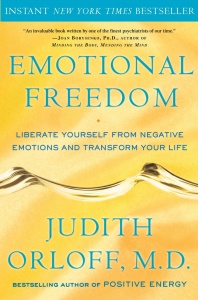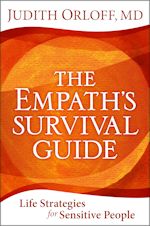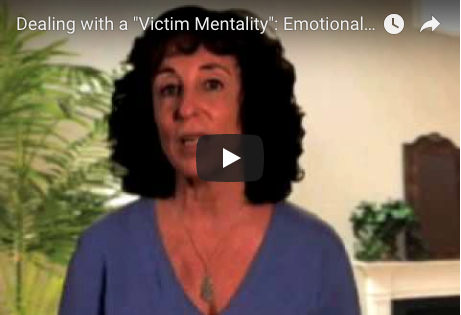Do you have an energy vampire in your life? Get the “Energy Vampire Survival Guide” PDF here.
As a psychiatrist, I teach my patients the importance of learning how to deal effectively with draining people. In Emotional Freedom one of the types I discuss is called the “victim mentality.”

 The victim grates on you with a poor-me attitude, and is allergic to taking responsibility for their actions. People are always against them, the reason for their unhappiness. They portray themselves as unfortunates who demand rescuing, and they will make you into their therapist. As a friend, you want to help, but you become overwhelmed by their endless tales of woe: A boyfriend stormed out…again; a mother doesn’t understand; a diva-boss was ungrateful. When you suggest how to put an end to the pity party, they’ll say, “Yes…but,” then launch into more unsolvable gripes. These vampires may be so clingy they stick to you like flypaper.
The victim grates on you with a poor-me attitude, and is allergic to taking responsibility for their actions. People are always against them, the reason for their unhappiness. They portray themselves as unfortunates who demand rescuing, and they will make you into their therapist. As a friend, you want to help, but you become overwhelmed by their endless tales of woe: A boyfriend stormed out…again; a mother doesn’t understand; a diva-boss was ungrateful. When you suggest how to put an end to the pity party, they’ll say, “Yes…but,” then launch into more unsolvable gripes. These vampires may be so clingy they stick to you like flypaper.
AM I IN A RELATIONSHIP WITH A “VICTIM?” Take this Quiz
If you typically get drawn into fixing other people’s problems, chances are, you’ve attracted numerous victims into your life. To identify if you are in relationship with a victim mark Yes or No to the following characteristics:
Give each “Yes” response one point and count your score. If your score is three or more then you are probably in relationship with at victim. Interacting with this type of person can cause you to be irritated or drained and will make you want to avoid them.
Strategies to Deal with a Victim Mentality:
Set Limits with an Iron Hand and a Velvet Glove
I love what Mahatma Gandhi says: “A ‘No’ uttered from deepest conviction is better and greater than a ‘Yes’ merely uttered to please, or, what is worse, to avoid trouble.” Kind but firm limit setting is healthy. People must take responsibility for their own lives. You’re not in the business of fixing anyone. Enabling always backfires. Without limits, a relationship isn’t on equal ground; and no one wins. You might well feel, “I’m sick and tired of your complaints.” But instead, using a more measured tone, here’s how to address some common situations.
Use these methods to deter victims:
Whether you’re confronting a drainer or transforming your own negativity, being empathic is vital. Elevating you to the realm of the heart, empathy allows you to non-defensively understand, even have mercy on antagonizers. Also, you’ll better intuit the feelings behind someone’s words. If a friend complains that you’re being selfish, the deeper meaning could be, “I’m hurt because we’re not spending enough time together.” With empathy, you’re privy to hidden motives. Seeing people’s frailties with compassion doesn’t make you a door mat. Though you may not choose to subject yourself to them, you need not hold this suffering against them. Labeling someone “the enemy” is a spiritual wrong turn.
Adapted from Dr. Judith Orloff’s NY Times bestseller Emotional Freedom: Liberate Yourself From Negative Emotions and Transform Your Life (Three Rivers Press, 2011)






I needed this article. Thank you.